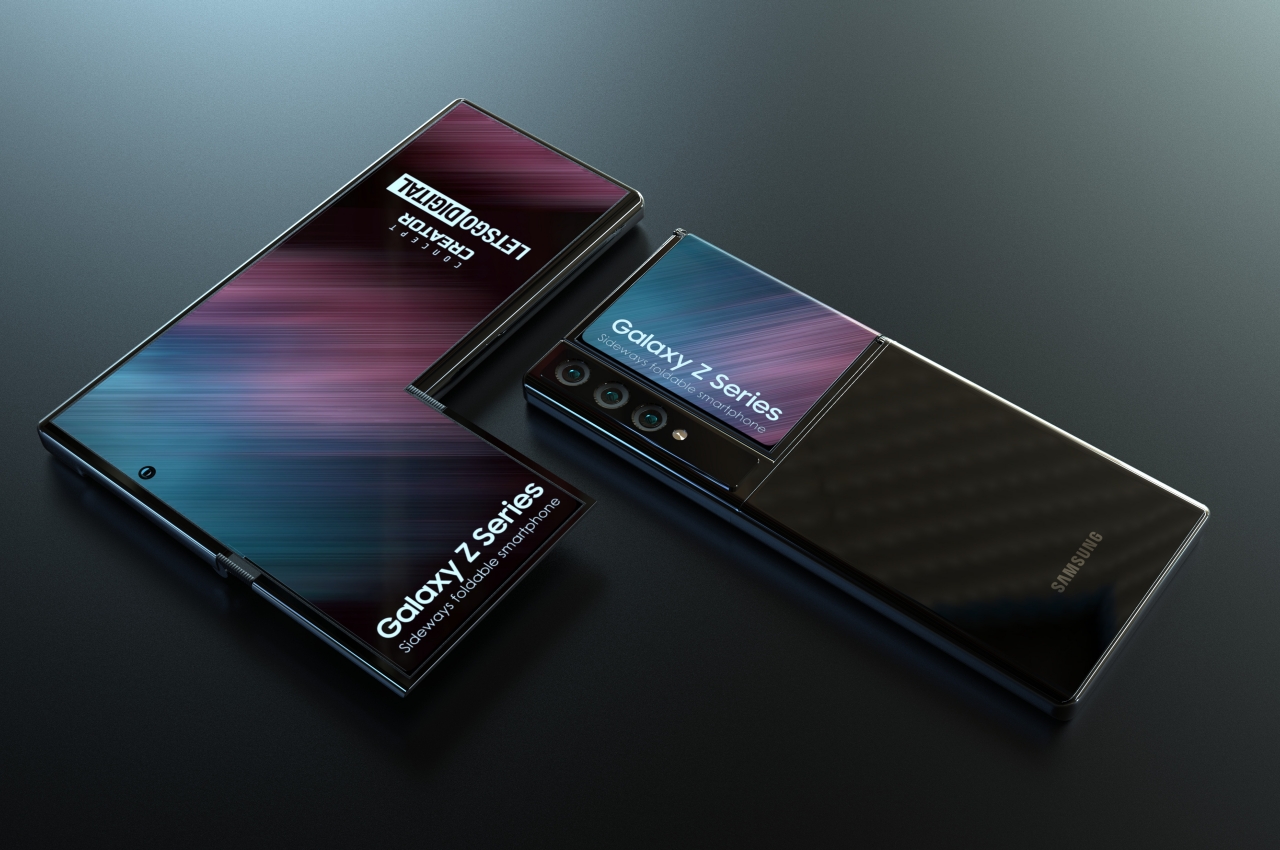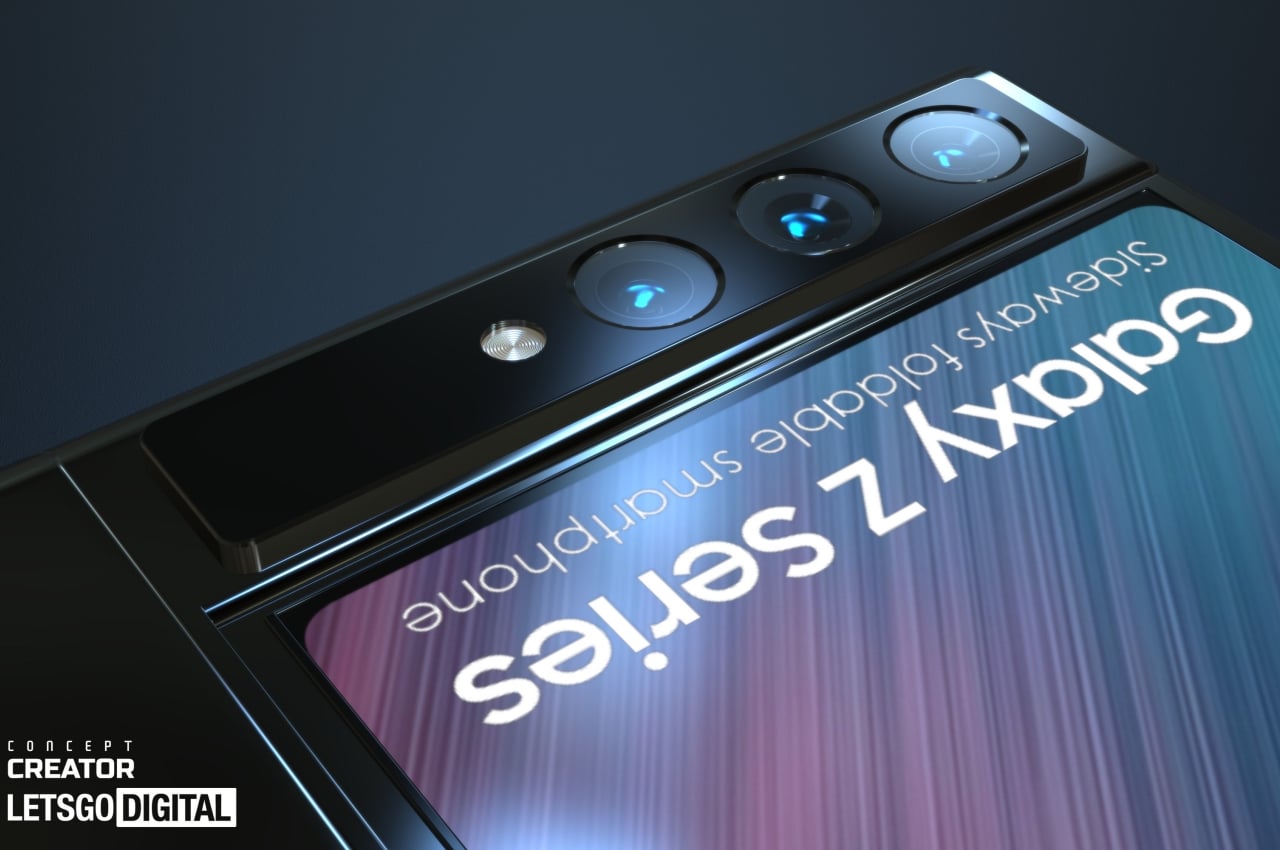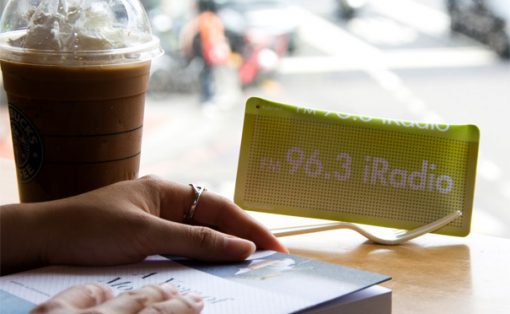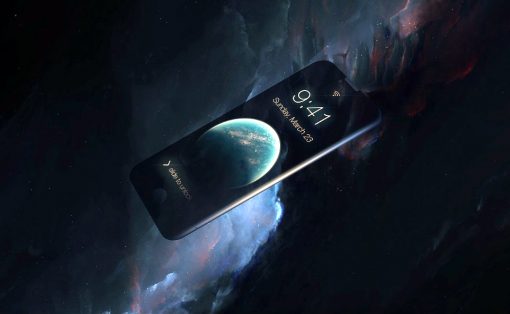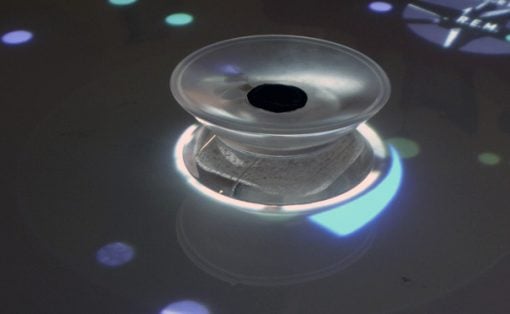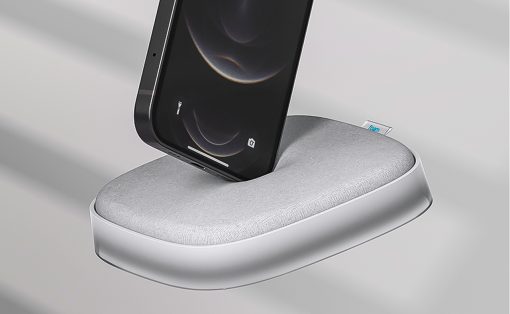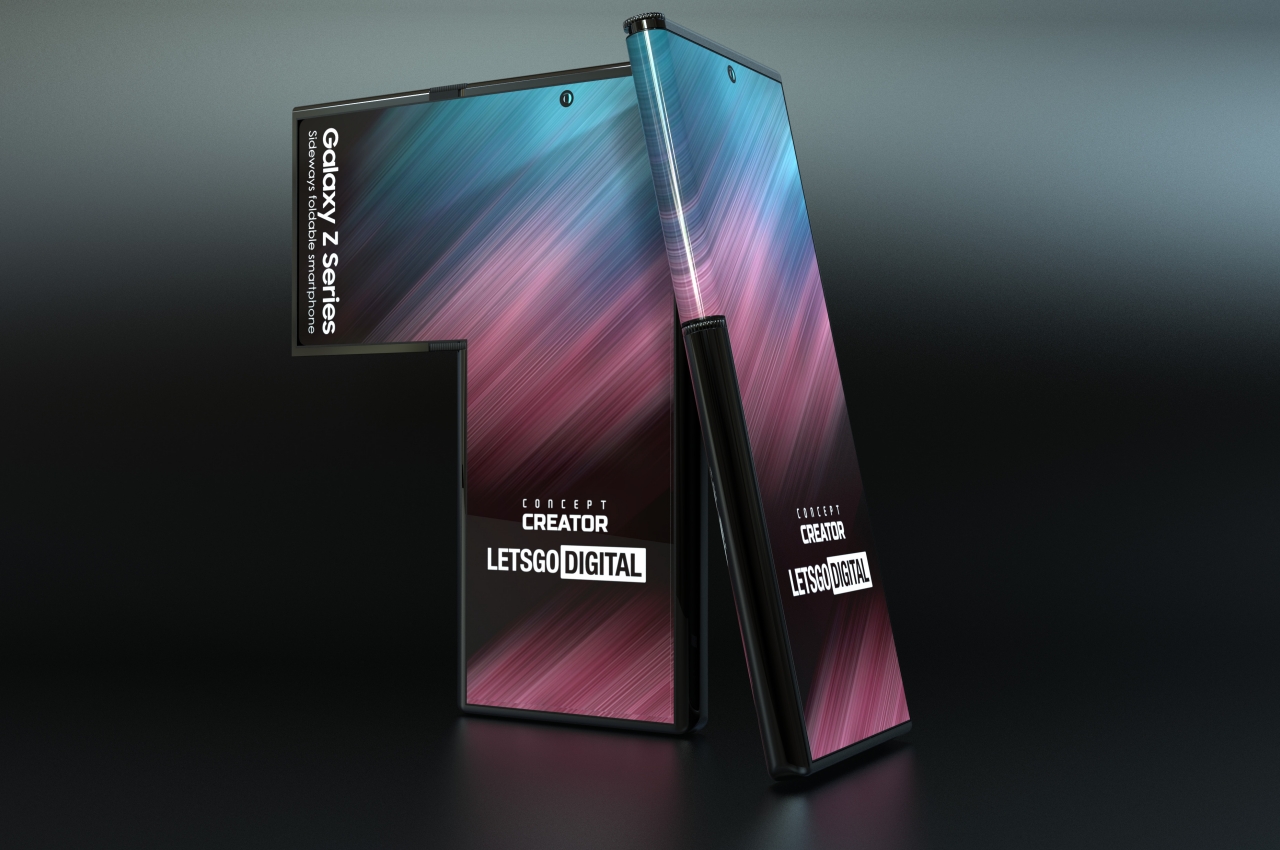
Flexible displays open up a world of possibilities, though some of them might make less sense than others.
Samsung is probably regarded as a king of foldable phones, though its dominance is being challenged a bit by an upstart like OPPO. It still has a wide lead and has plenty of resources to through at R&D. For more than a decade, the company has been dreaming up the different ways foldable devices can change and improve our lives. Some of those dreams do end up becoming actual products, but many remain within the realm of ideas formalized as patent filings. One such patent involves a phone with a flap, which is probably the most accurate way to describe this concept that both makes sense and doesn’t at the same time.
Designer: Jermaine Smit (Concept Creator)
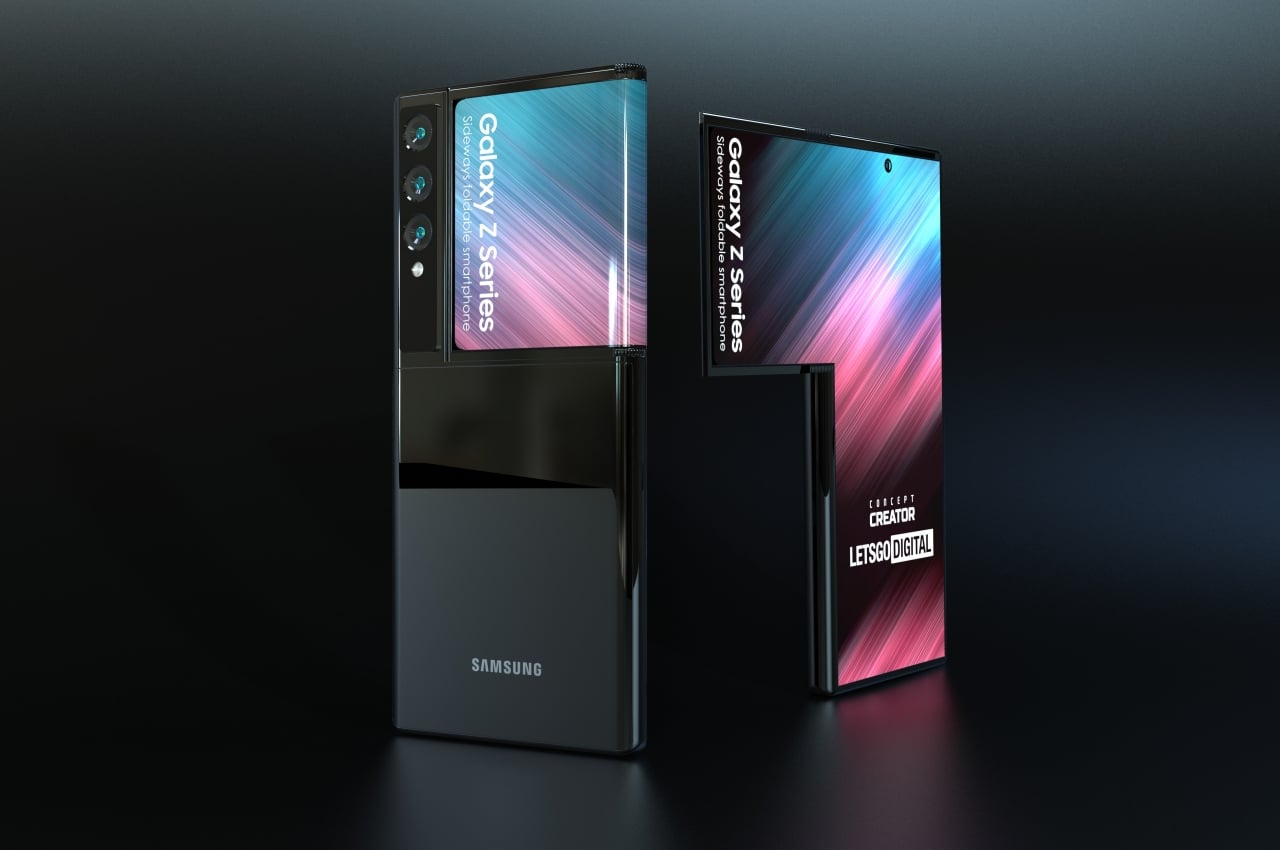
The current breed of foldable phones uses screens that fold right in the middle, whether vertically or horizontally, inside or out. That’s not the only way to fold, of course, but companies are limited by current manufacturing technologies and materials. In the world of patents, however, it’s almost a free for all affair, as long as you can get the design or idea approved first.
With very few constraints, Samsung envisioned a phone that, when laid out unfolded, resembles a shorter version of the L-shaped Tetris block. The top half of the screen extends to the left, and that extension folds back like a flap, with the folded screen facing the same way as the cameras. This transforms the phone into a more regular shape, like the I-block of the same game.
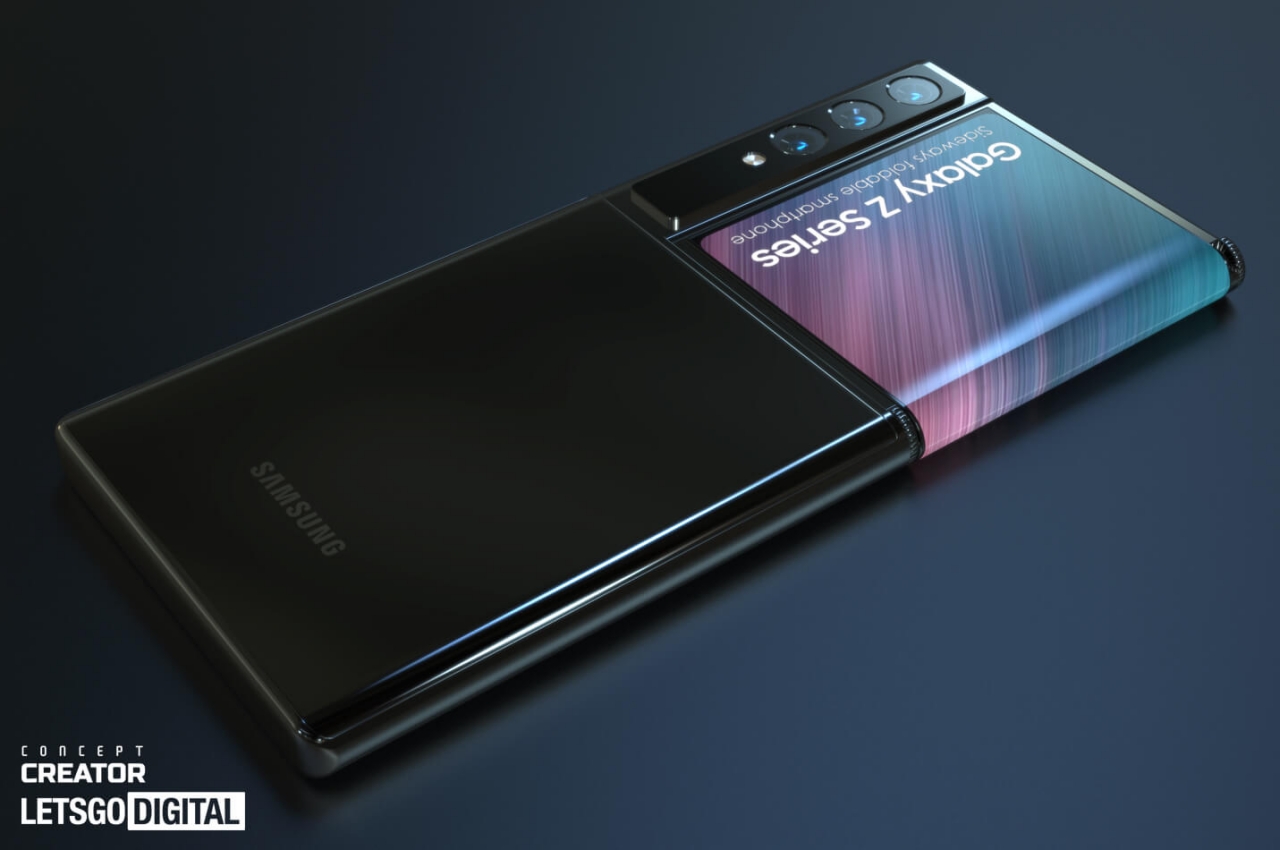
The patent reported by LetsGoDigital almost has an uncanny resemblance to one of LG’s weirdest phones, the LG Wing and its swiveling screen. That existing phone forms a T-shape, though, again like a Tetris block, with a smaller square screen that acts as a secondary display. Samsung’s idea is almost similar but with one extra trick that LG couldn’t pull off.
That flap seems to be functional even when folded, which makes it possible to display things like notifications on the backside of the phone. It can even be used as a viewfinder, allowing the owner to take selfies with the more powerful main cameras. The curved part of the screen at the edge can also be used as a display for something like the date, battery status, and maybe even a ticker for notifications.
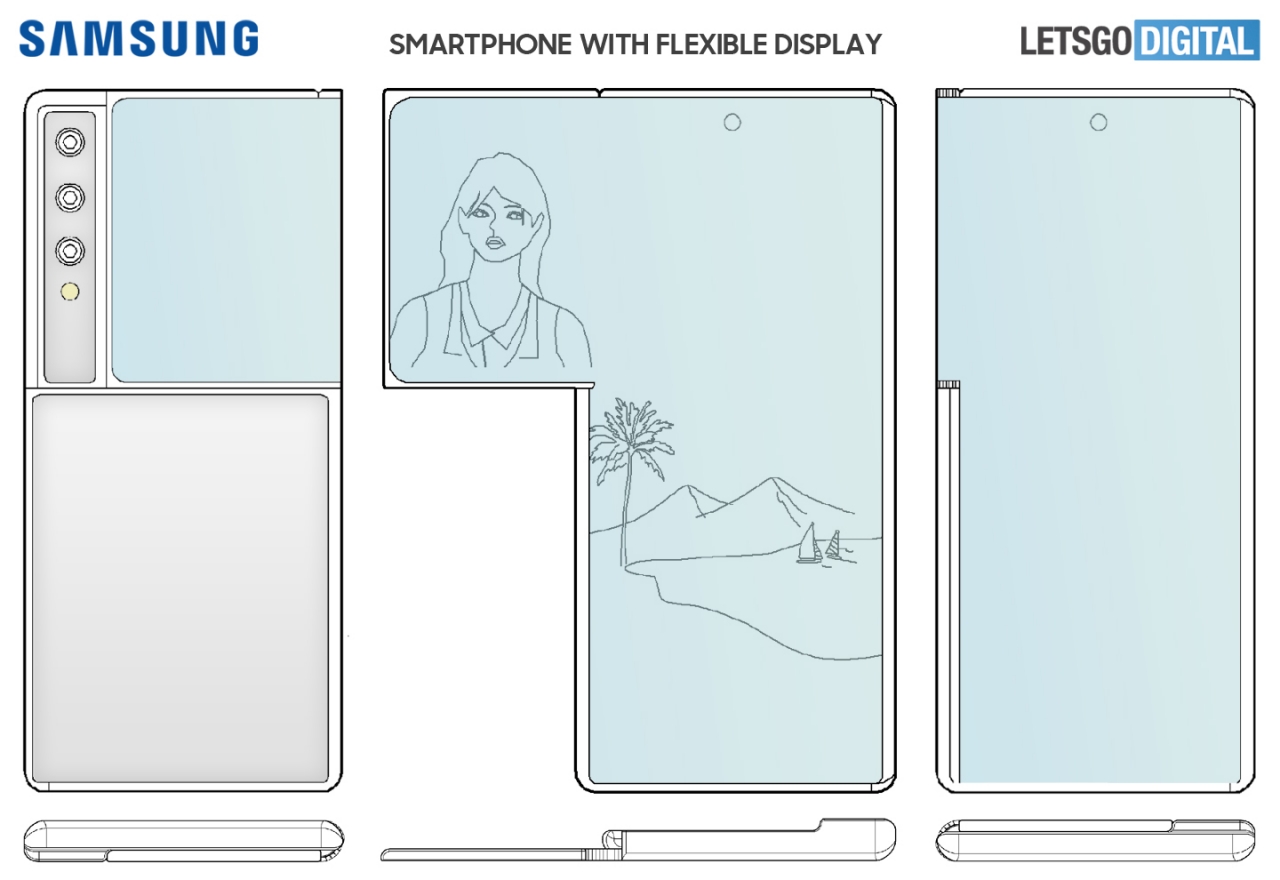
When unfolded, that extra screen could display a different app or extended controls for the same app. Conversely, you can use the top portion to watch a video in full, leaving the bottom half of the screen for typing or other things. Unfortunately, the LG Wing proved that a successful implementation relies heavily on software as much as hardware, and not even Samsung, with its fancier Android skin, is there yet. Then again, this is just a patent after all, and it’s simply an act of calling dibs on an idea, whether or not Samsung ends up implementing something as odd as this.
